'Meeting my mother after 42 years was a miracle'
- Published
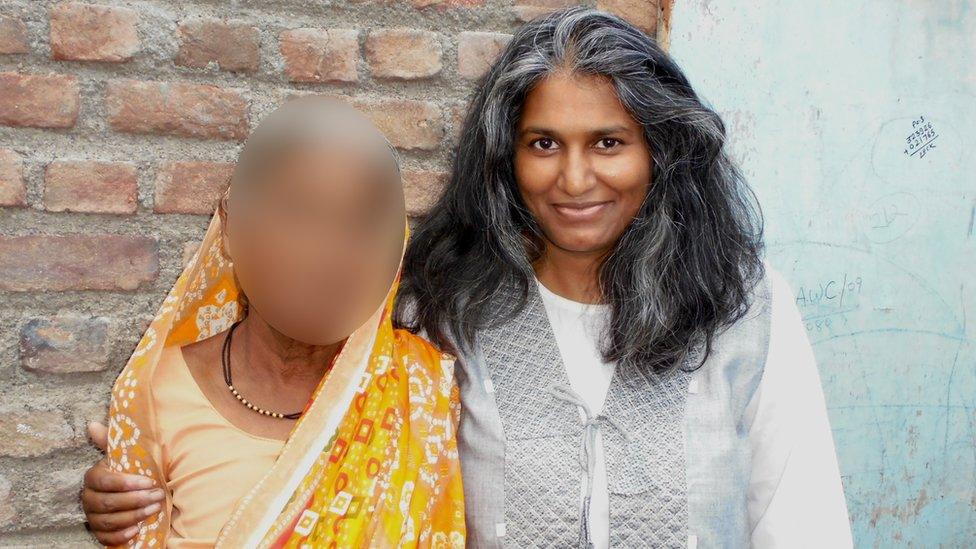
Elisabet Purve-Jorendal visited her mother last September
Elisabet Purve-Jorendal was born in India and given away for adoption in 1973 when she was less than six months old.
A Swedish couple adopted her when she was two-and-a-half years old and gave her a new life.
Forty-two years later, she tracked down her biological mother and had an emotional reunion with the woman she had wondered about all her life.
Speaking over the phone from her home in Helsingborg on the Sweden-Denmark border, she told the BBC that meeting her mother was "nothing less than a miracle".
"My mother was 21 years old. She had been married to my father, a farmer, for three years when one day he came home after a fight with someone. He was very angry. He killed himself. He had consumed pesticides," Ms Purve-Jorendal said.
Her mother went to stay with her parents who wanted her to remarry and restart her life.
"But she was pregnant, and she didn't even know," says Ms Purve-Jorendal.
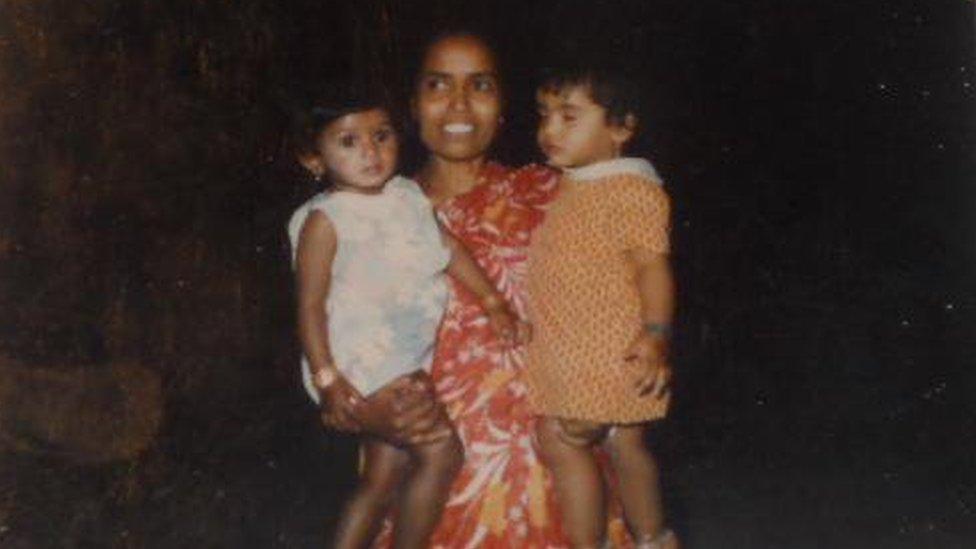
Elisabet Purve-Jorendal as a baby (left) at the Pune children's home where she was born
When the family discovered her pregnancy, they took her to a charity in Pune where she delivered a baby girl in September 1973. "I'm told that for a few months, she stayed at the centre, nursed me and looked after me."
When Ms Purve-Jorendal turned two-and-a-half, she was adopted by a couple in Sweden who provided her a new home and a new life.
"But I always wondered about my mother in India. Who was she? How was she? Why did she leave me? I knew I needed to find her since I was a part of her. I wanted to get answers to all my questions."
Her adoptive parents were supportive of her quest, but others couldn't fathom why she would want to rake up the past. "You have a good life here. Leave her alone," they advised her.
Ms Purve-Jorendal began actively looking for her mother in 1998 and nearly two decades later, her search ended in a small village in Maharashtra.
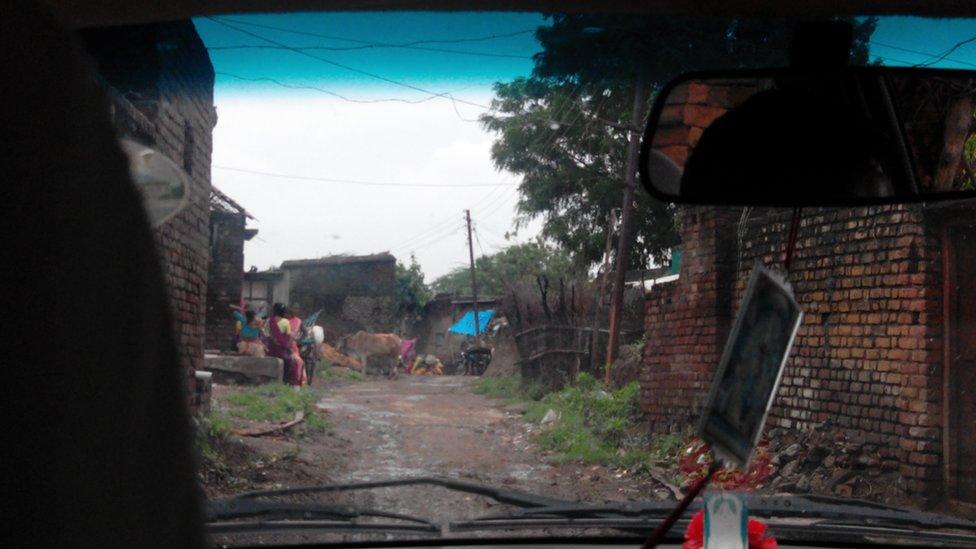
Ms Purve-Jorendal's search ended in a small village in Maharashtra
At the outset, she didn't have much to go by - just the names of her mother and her grandfather that were in the adoption papers.
"I realised how hard it was to get anywhere with that. How do you find someone in a country of 1.2 billion people? It's like looking for a needle in a haystack. You must have the right connections, know how to press the right buttons."
In 2014, she contacted Against Child Trafficking (ACT), a voluntary organisation based in Belgium.
On 8 August last year, she received an email from ACT which said they had succeeded in tracing her mother and attached were some photos.
"I can't describe my feelings. Here was a person I had longed for my whole life and then I see her photograph. It was beyond imagination. It was a miracle."
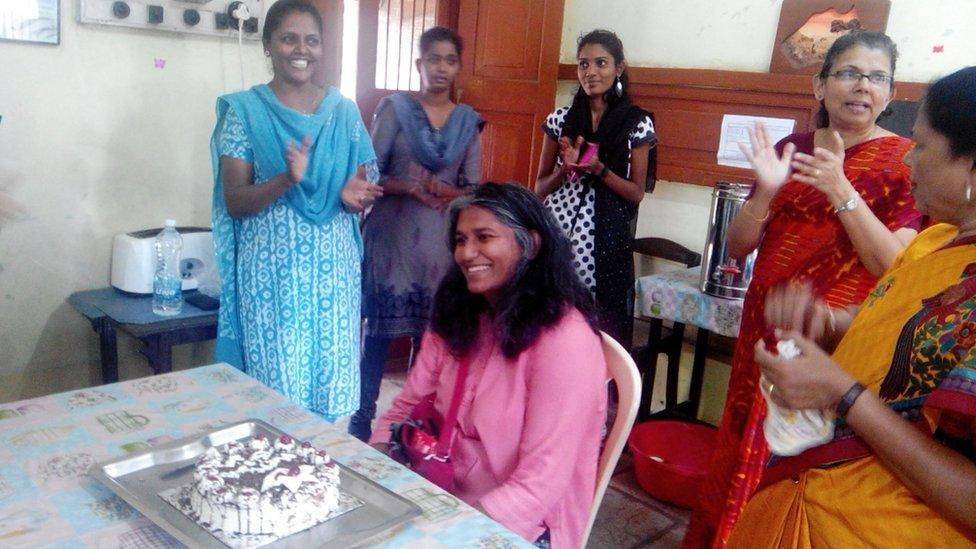
Elisabet Purve-Jorendal celebrated her 42nd birthday at the Pune home where she was born
A few days before her birthday in September, she flew halfway across the world to meet the woman who had given birth to her.
"And suddenly I was there. Outside her house, outside her door. A social worker had been in touch with her so she was expecting me. She was sitting down and stood up when she saw me. I had a blackout, I did not react. She was also shocked."
Ms Purve-Jorendal's mother has two children - a son and a daughter - from her second husband who died a few years ago. Today, she lives with her son, his wife and their children.
She has kept her first-born a secret so, with the daughter-in-law and grandchildren watching, "she swallowed her tears. And I had to do the same. I was told I couldn't cry".
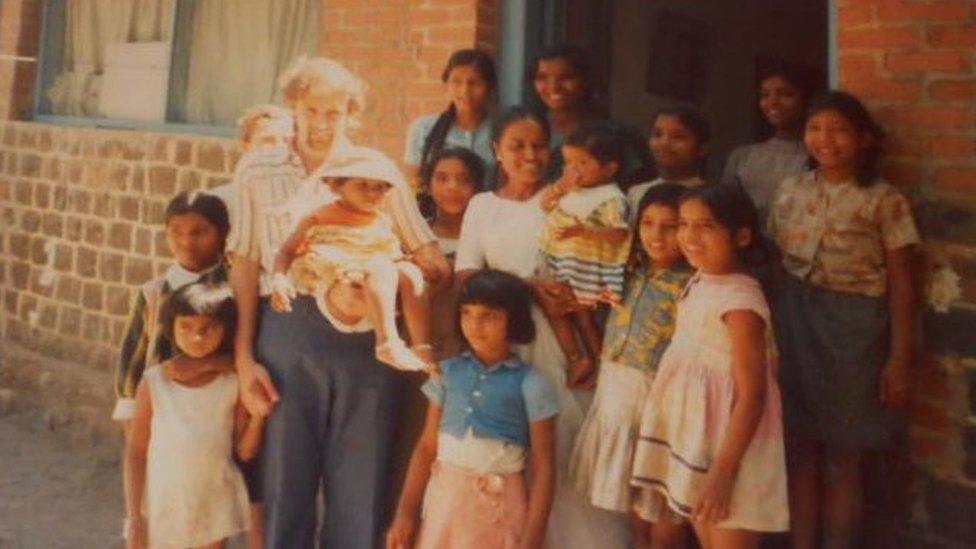
A visitor to the Pune home carries Ms Purve-Jorendal in his arms
Ms Purve-Jorendal was introduced to her brother as a cousin and the family still does not know the truth.
To be able to have a conversation with her mother, she invited her to her hotel.
"In the taxi, we found each other's hands. And for the two-hour-long ride, we kept holding hands.
"She said she didn't want to leave me. She wanted to take me with her, but she didn't have a choice. She didn't know I was in Sweden. She had no idea where I was. She said she'd thought she would never see me again."
Ms Purve-Jorendal says she was "taken aback" by the "striking resemblance" she has with her mother.
"My Indian family has a term for it, they say I'm like her 'carbon copy'. We don't just look like each other, we also have the same mannerisms, we use the same hand gestures, how we sit."
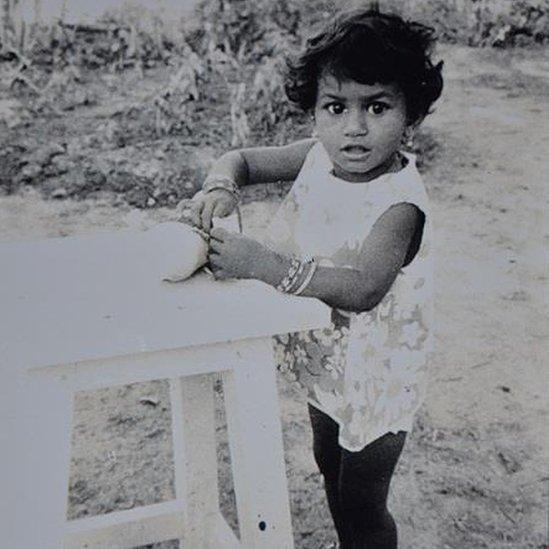
Ms Purve-Jorendal spent the first two-and-a-half years of her life at the orphanage in Pune
Growing up in a family where "everyone else was alike whereas I was different wasn't easy", Ms Purve-Jorendal says, adding that "it was like being on a different planet".
Now, she says, she no longer wants to live away from her mother.
"She's been carrying this huge burden for most of her life, of not being able to tell anyone. I want to be there for her, she's my mom, I want to be close to her so I'm going to try and live at least part of the year in India.
"She's my blood, my real roots."
Ms Purve-Jorendal spent two days in the village and when the time came to leave, it was a moment she says she would never forget.
"At our final meeting, I didn't want to leave her. I started crying. She was sitting next to me and as tears rolled down my cheeks, she wiped them with the corner of her sari and said, 'Don't cry my child.'
"At that moment, I knew she loved me."